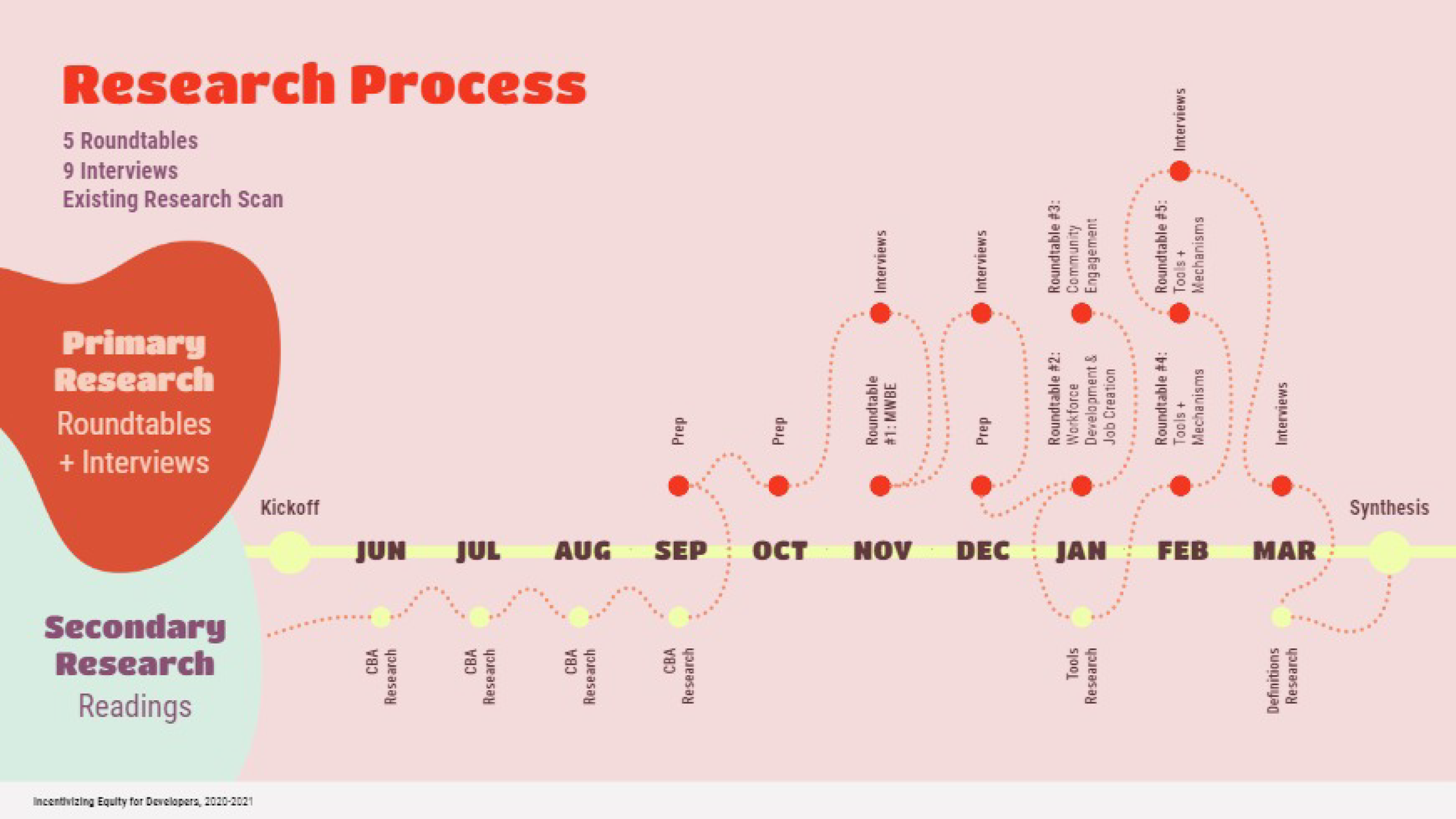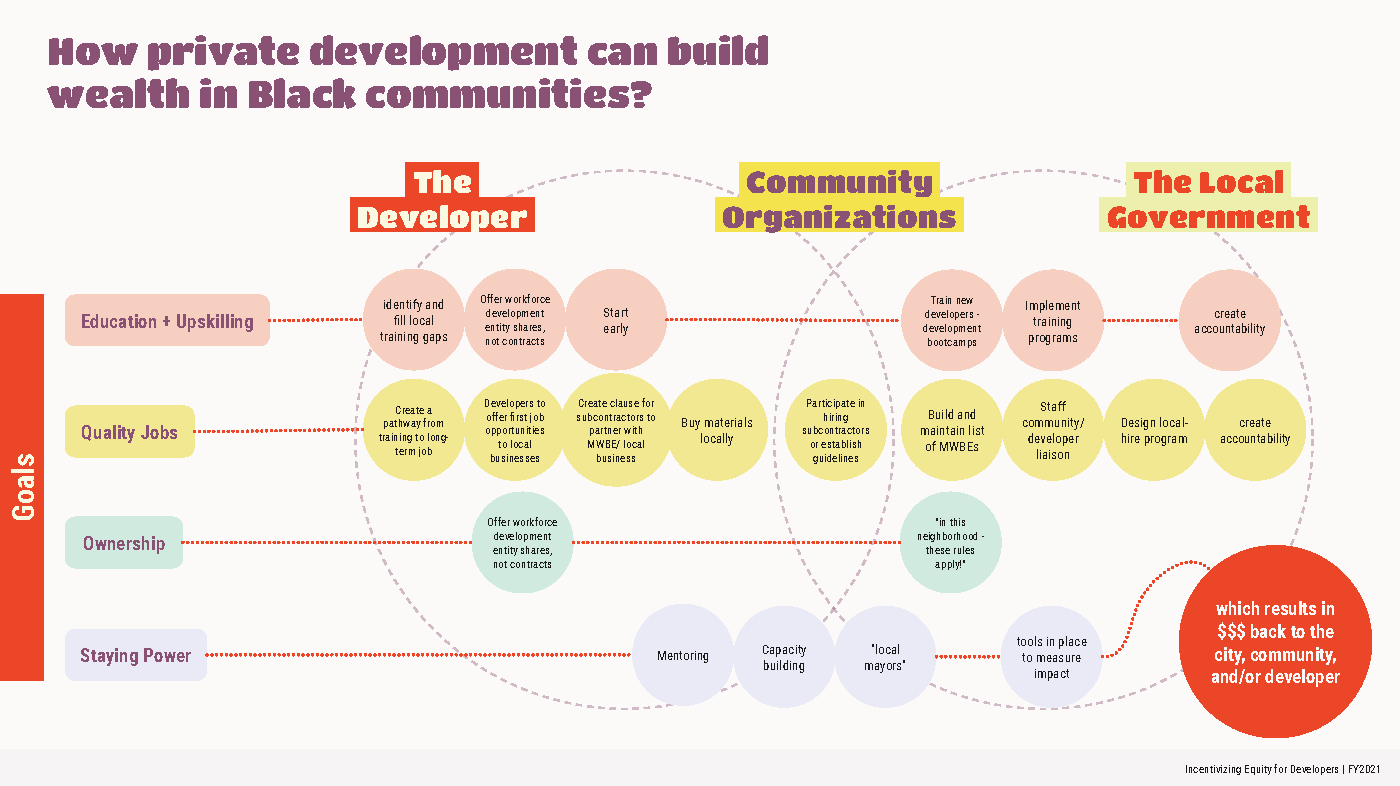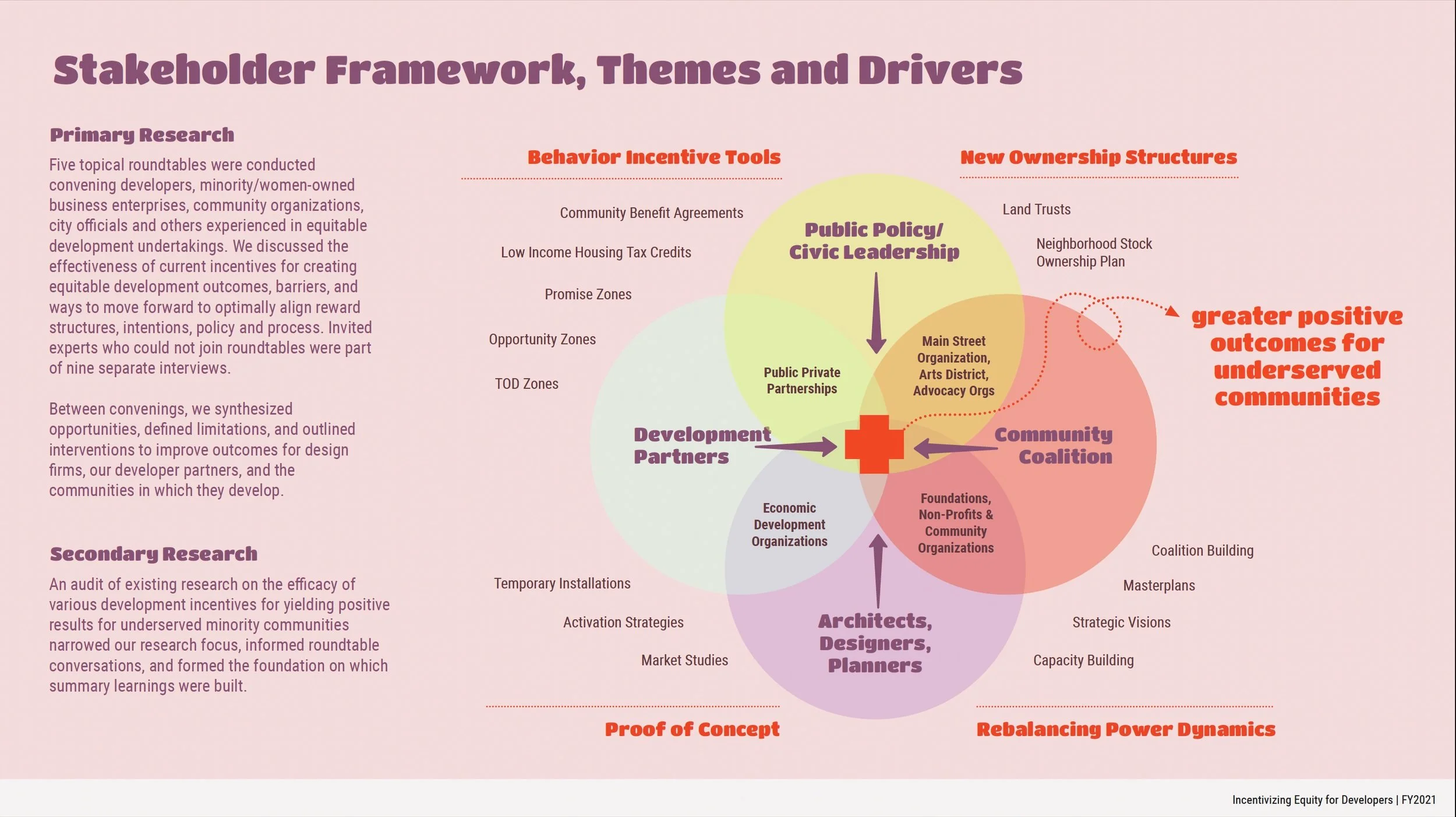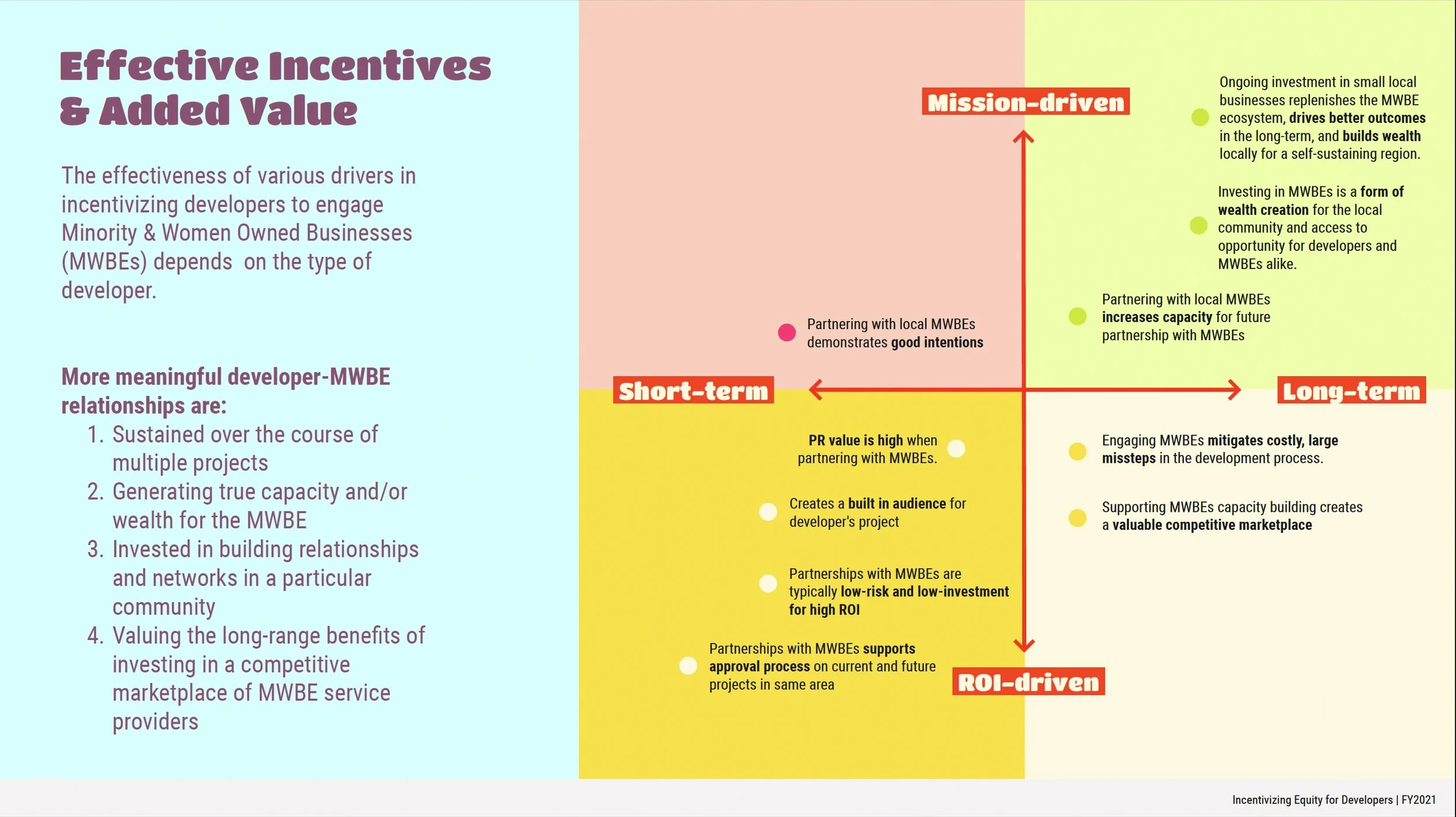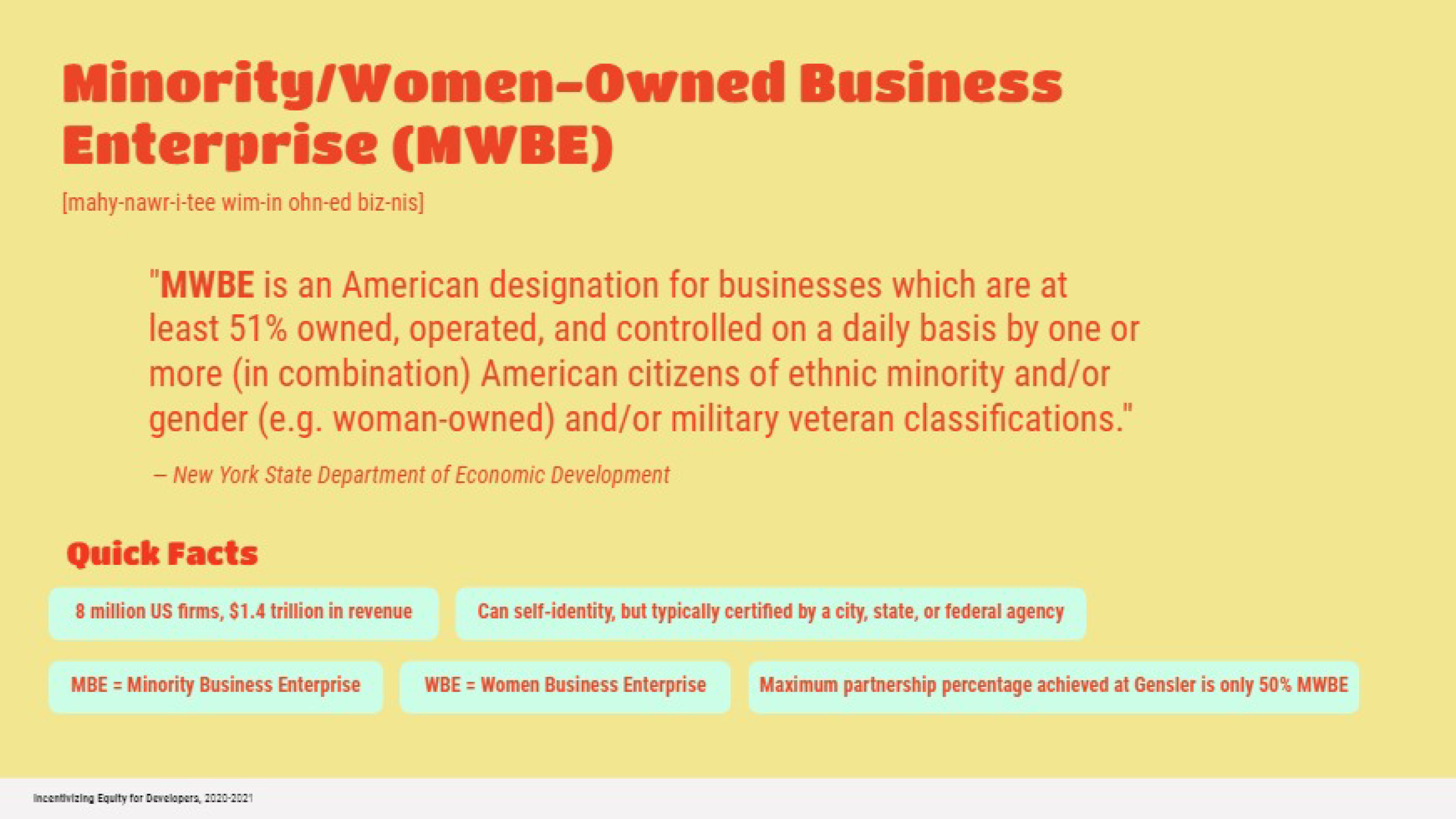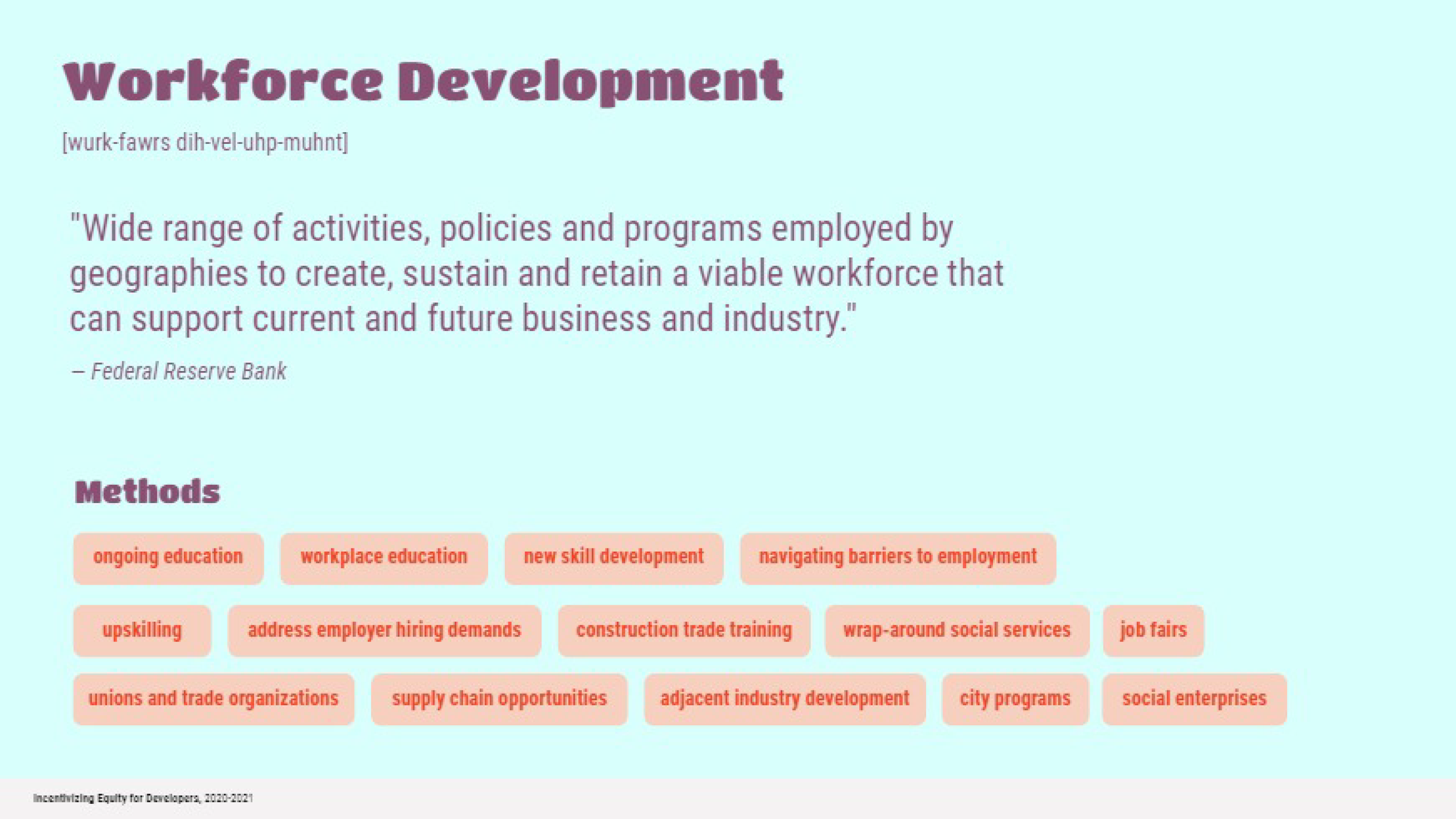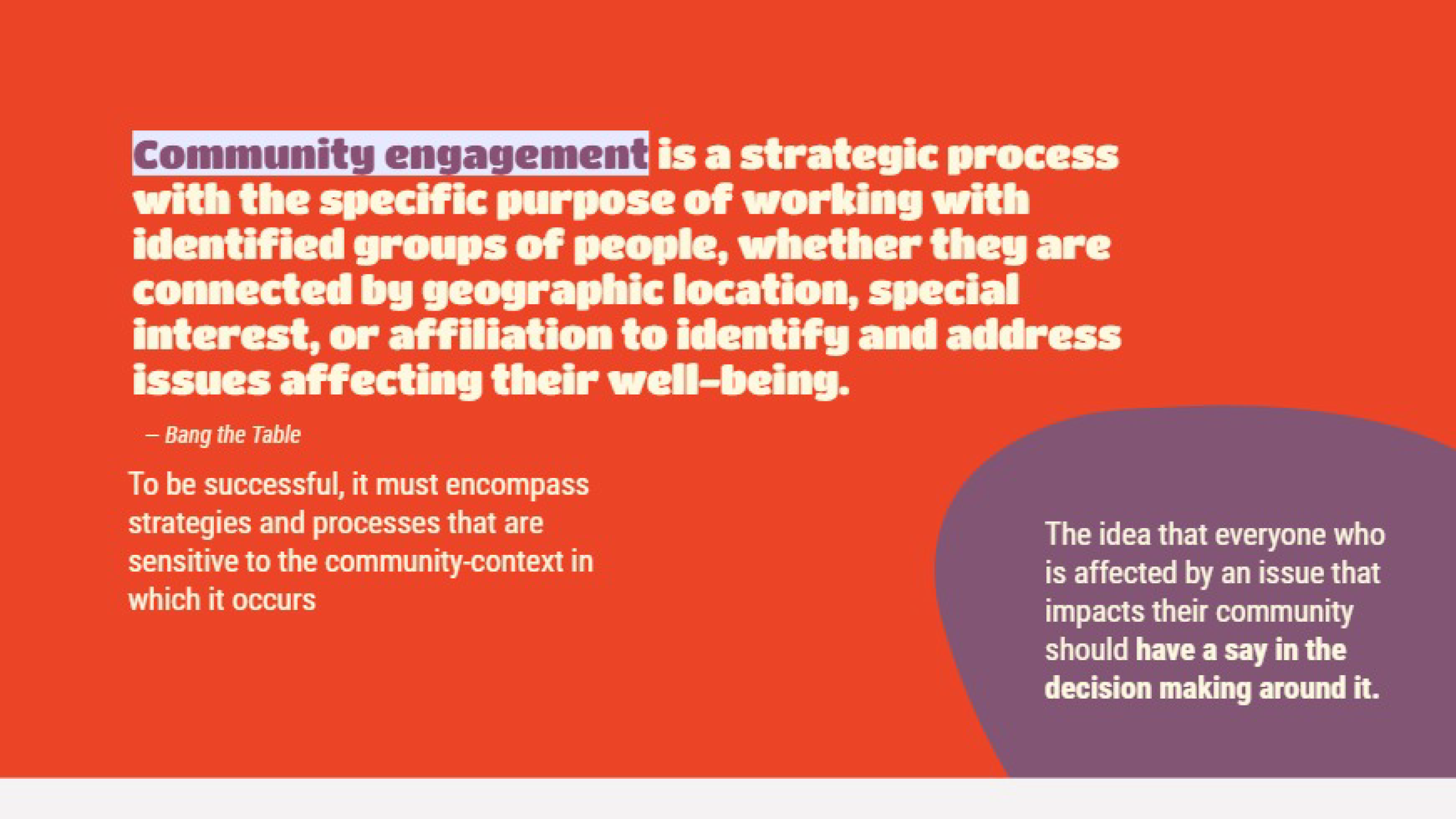Incentivizing Equitable Development
Project Type: Research
Philadelphia, PA
2021
Role
Team Lead, Lead Strategist
Description
In the summer of 2020, the Gensler Research Institute established the Center for Research on Equity and the Built Environment, focused specifically on funding research dedicated to addressing systemic racism, unconscious bias, and social justice. The Center funded only 15 projects beginning in the summer of 2020, including our effort exploring equitable development strategies, inspired by the structure of Community Benefit Agreements.
Outcome
After extensive research, workshops, and interviews, the team concluded that
true social change requires reciprocal, trusting relationships. The trust of communities impacted by new development is hard-won, and trust is the first step to reaching tactical outcomes often associated with equitable development. Therefore, we began to build out a toolkits of resources to support developers and designers on their mission to enable equitable development.
PHASE 1: DISCOVER
PHASE 2: DEFINE
PHASE 3: DELIVER
PHASE 1: DISCOVER
To give structure to this research phase, we utilized the human-centered design framework. To build empathy with our users and stakeholders, the team conducted a series of roundtables, individual interviews, industry survey and a literature review. The group sessions convened developers, minority/women- owned business enterprises, community organizations, city officials and others experienced in equitable development undertakings. We discussed the effectiveness of current incentives for creating equitable development outcomes, barriers they all face, and brainstormed how to optimally align reward structures, intentions, policy and process to keep the effort moving forward.
PHASE 2: DEFINE
A number of socio-economic factors are contributing to the current focus on equitable development. Cities, developers, designers, contractors and many other stakeholders are all rapidly adjusting to an evolving development landscape. Despite more attention on the topic, there is a lack of common understanding of what defines equitable development and how to do it. The team identified these common challenges, and proposed (then prioritized) potential solutions for each area explored.
PHASE 3:DELIVER
One of the strongest outcomes of our research effort was that participants we were able to connect with each other to continue building their community of practice. Translating the wealth of information we collected into different education formats, project opportunities and market-focused conversations opens several pathways for these learnings to continue to grow and evolve. Our research team identified an existing project to incorporate our findings, and to test their impact in a real world scenario.
